Ata — Resource collection
Ata is a collection of cards and activities for teaching and learning social and emotional skills, knowledge and strategies. Using these resources will help ākonga build awareness of themselves and others as they practise skills and develop strategies that help them live and learn together better.
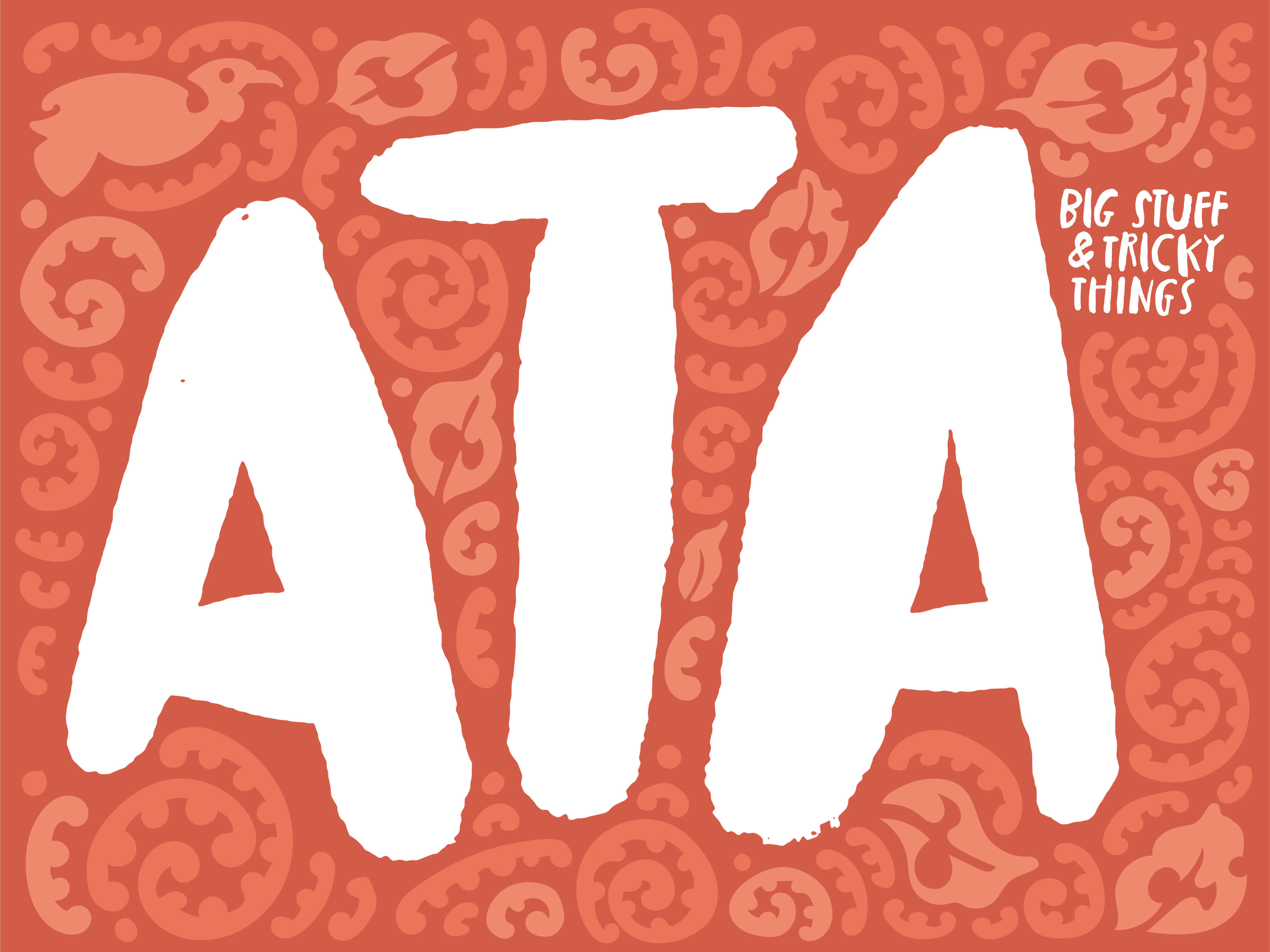
These skills and strategies include self-regulation and co-regulation through goal setting, decision making, identifying and strategically responding to challenges, and recognising and navigating emotions.
By using the elements of Social & Emotional Learning (SEL) — developed from Relating to others and Managing self key competencies — we can help ākonga realise their potential through mana-enhancing, socially located and culturally sustaining ways.
Teachers can tailor the activities in the Ata collection to suit learners from years four to 10 in various learning areas and individualised or group settings. Ākonga can use the activities one at a time or in almost any sequence.
The cards, activities and teacher support materials provided in this collection are available as free downloadable, printable files.
Social and Emotional Learning
To find out more about these activities, please visit the Social and Emotional Learning (SEL) support and collections pages.
Activities
-
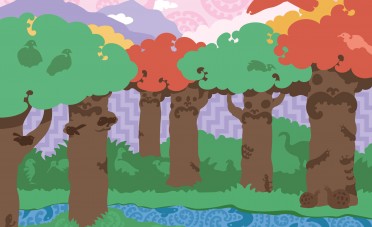
Elements puzzle
Explore the elements and key competencies. Combine the matching parts to discover their meaning.
-
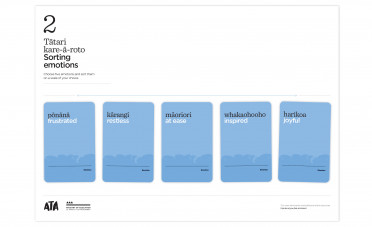
Sorting emotions
Choose five emotions and sort them on a scale. There’s also a gameplay version.
-
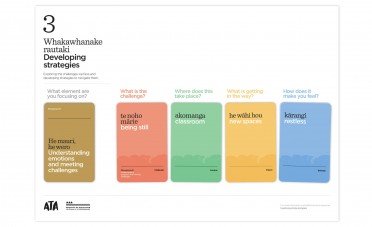
Developing strategies
Exploring the challenges we face and developing strategies to navigate them.
-
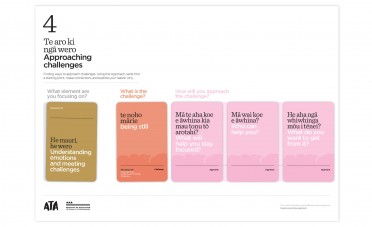
Approaching challenges
Using the Element, Challenge and Approach cards, along with the Approaching challenges activity sheet, learners can find ways to approach challenges.
-
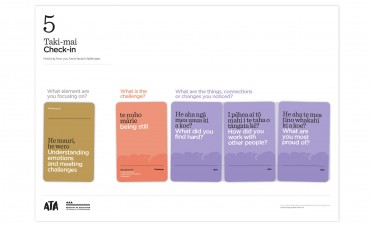
Check-in
Check-in and notice how you have faced challenges.
-
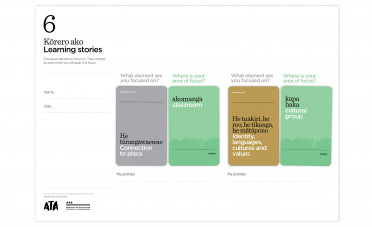
Learning stories
Plan your learning conferences. Choose an element to focus on. Then, choose a context where you will apply this focus.
Downloads
-
Ata cards jpgs
A complete set of all the Ata cards in jpg format.
19 MB
-
Ata activity sheets all
A complete set of all the A3-size Ata activity sheets in pdf format.
491 KB
-
Ata Blank Cards Printable
Blank Ata cards in an A3-size printable format. Use for capturing ideas and customising the resource.
Pdf, 234 KB
-
Ata cards printable
A complete set of all the Ata cards on print-friendly A3-size pages. Files are in pdf format.
8.5 MB
-
Ata teacher support material
Teachers support material for all activities in the Ata resource collection.
Pdf, 3.4 MB
To order a copy of Oho and Ata please email [email protected]
About the name and artwork
Ata is a word rich with meaning. It can mean the dawn, which talks broadly about Ranginui the Sky Father and Papatūānuku the Earth Mother creation story, and our appearance as tāngata into the world of light, Te Ao Mārama and the world of enlightenment. The new day as a metaphor also talks about new opportunities. Ata can also mean reflection or reflected image — this relates to the social and emotional learning mahi, in that the resource, imagery and kōrero provoke thought, conversation and reflection.
Big stuff & tricky things. A playful reference to the fact that exploring social and emotional learning can be a tricky but rewarding journey.
The Ata box artwork is inspired by designs of traditional waka huia, papa hou or treasure boxes. The intricate illustrations are treasures in their own right — they are indicative of the rich and rewarding journeys that the resources inside can enable.
Credits
Co-designed for The Ministry of Education by Chrometoaster and IDIA | Indigenous Design & Innovation Aotearoa.
Co-design team:
Chrometoaster — George Frost, Aaron McKirdy, Qudsia Rashdi, David Read and Dave Turnbull; IDIA — Miriame Barbarich, John Moore and Dr Johnson Witehira; Cat Lunjevich; Judy Cochrane; Nic Gorman; Leanne Stubbing; Chrystal Doller; Ellie Tofts; Conrad Nepe Apatu; NZCER — Dr Rosemary Hipkins, Rachel Bolstad; Ben Sedley; Dr Melinda Webber; Nathan Wallis; Aatea Solutions; CreativeHQ; Dr Sonja Macfarlane; Dr Stuart McNaughton.
Informed by the research of:
Ted Glynn, Waiariki Grace, Dr Angus Macfarlane and Dr Wally Penetito.
Thanks to:
New Zealand Council for Educational Research (NZCER), Curriculum Progress and Achievement Ministerial Advisory Group and the schools, teachers and learners who contributed and trialled resources. Special thanks to Newlands Intermediate School and Wainuiomata Primary School.